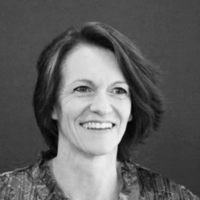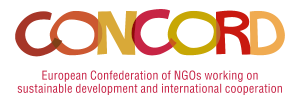
I’ve just come back from 8 days in Uganda – my first trip outside of Europe in over 18 months – and I was struck by the vastly differing realities, so much so that I had to re-adjust to being in Europe. Whereas for many people in Uganda, the conversation is about surviving the tough socio-economic context that COVID-19 has engendered, I came back to find a totally different conversation raging in Europe: one about the power, scope and influence of the Big 5 Tech companies – Facebook in particular.
Earlier this month, thanks to the revelations of two courageous whistleblowers about how the company’s executives are ‘allowing’ political manipulation, including by authoritarian governments, the scale of their misdeeds has become clearer.
Facebook has been accused of fanning ethnic violence in Ethiopia and Myanmar, tipping the scales in US elections and promoting horse drugs as a cure for COVID-19. Perhaps the aspect which has become clearer following the disclosures, is that Facebook (and its associated social media platforms) is ‘unquestionably making hate worse’ around the world. And that should be of major concern to everyone in society.
It is extraordinary that one company can be responsible for changing the course of so-called democracies, or causing geopolitical conflict. Or, because of its power and influence, governments close it down to limit freedom of expression, as in the case of Uganda in its 2021 elections. What does this mean for an already shrinking civil society space? Particularly at a time when people are increasingly dependent on digital space to defend human rights.
So one has to ask: who should be held responsible? Is it the person who shares misinformation or hate speech? Is it the people who like, share and reply to these messages? Or is it the top executives who knowingly choose to ignore their company’s harmful influence in the interest of profit? These social media platforms have grown to their place of unchecked influence based on algorithms that boost content based on shock factor rather than factuality. And business models that create divide rather than dialogue.
In the day I spent ‘catching up’ after my trip, 300 hundred million people in Europe would scroll through their Facebook feed. It’s mind-boggling to think of the reach of this one company. And, despite all the controversy surrounding Facebook, its third quarter profit grew by $9billion!
However, the Big 5 are no longer merely large companies; they have taken control of aspects of society, over and above the way the economy functions. That is a very sobering thought. They’ve even grown massively while we’ve all suffered a major pandemic bringing much of the world to a standstill.
CONCORD has always maintained that relying on companies to ‘do the right thing’, to take voluntary action to remedy situations of human rights abuses – which include the right to (true) information and being free of online abuse – is highly unlikely to be adequate. It has been proven time and again that when profit is set against people’s well-being and the common interest, the bottom line wins. And the more a company controls a situation, the more unlikely it is to result in a positive outcome for ordinary people. That is precisely where the state comes in. However, when such companies are as powerful and geopolitically influential as Facebook, and more so than many states, limiting their manipulative and unethical practices is easier said than done.
That is why the EU’s efforts to curb the powers of such companies is so important. And why the disagreement between the two major parties in the European Parliament, slowing down the EC’s efforts in this regard, is so frustrating. The EU can – and must – play a role in rebalancing the power and keeping in check the influence of Big Tech, especially in the digital domain. And top executives must be held to account for their decisions and their acts. No doubt such regulation will not be the only measure needed. But it is a critical place to start. The EU must be visionary and take measures that will shape our digital world for the better for the next 20-25 years, including through involving civil society and enabling people to shape their digital environment.
The future is clearly digital. But that future must still respect human rights… and currently that is in the balance.
Tanya Cox,
CONCORD Director
